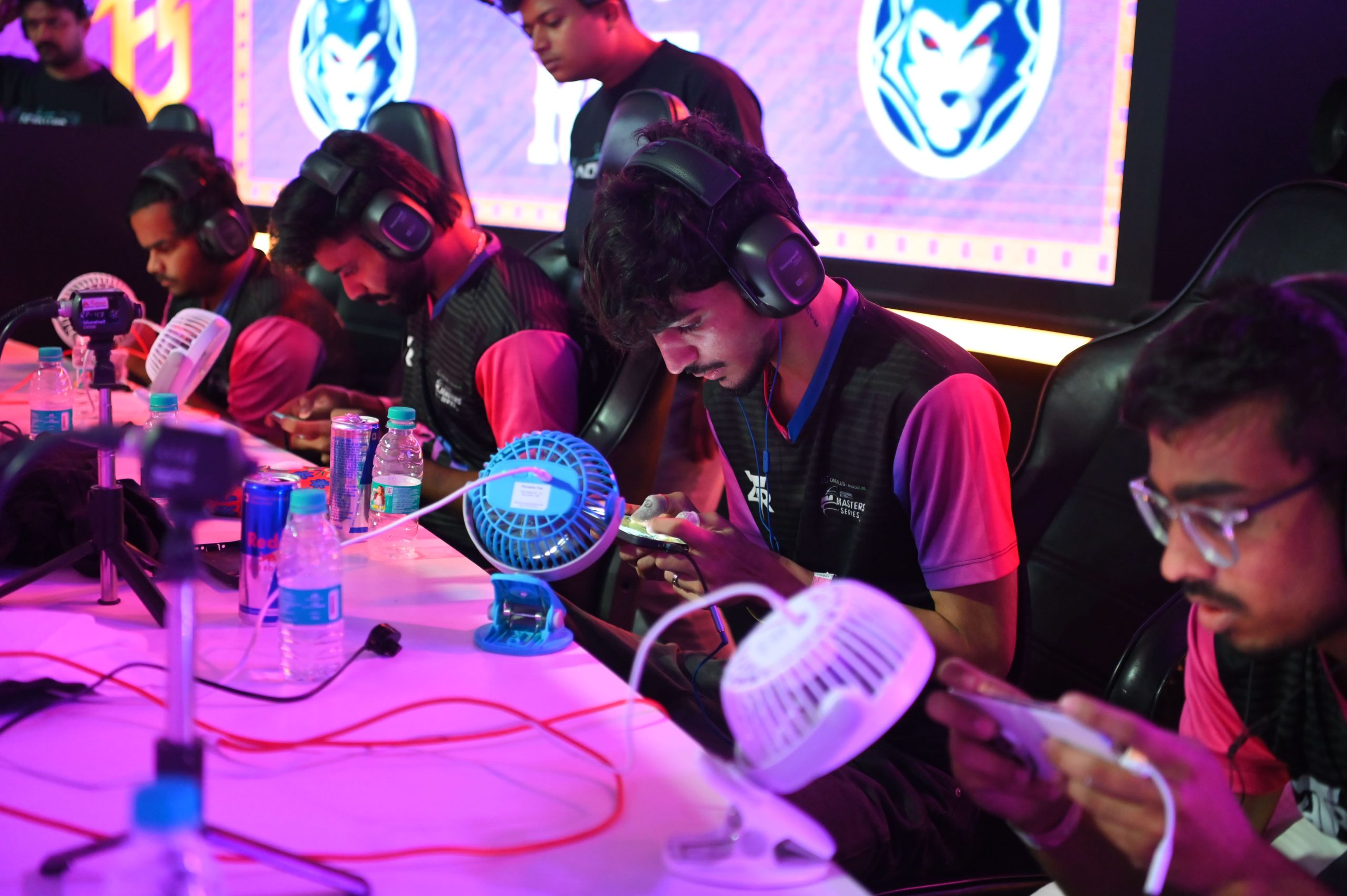Asia
IESF to Host Two-Day World Esports Academia Seminar in Busan

The International Esports Federation will host the World Esports Academia Seminar, a two-day event at the Busan Exhibition and Convention Center in Busan, from November 28 to 29, 2023. The theme of this year’s Seminar is “Socio-cultural challenges in the World of Esports Education” and will support the development of the World Esports industry through academic knowledge and research.
The Seminar will feature keynote speeches from knowledgeable members of the World Esports Family, including Del Rosario University esports professor Mario Andrés Agudelo Padilla, Chinese University of Hong Kong Professor Peichi Chung, Chair of IESF Equity Committee Diana Tjong, NASEF Executive Director Gerald Solomon and more.
NASEF Executive Director and Chair of IESF’s Education Committee Gerald Solomon said:
“IESF could not be more excited to host the World Esports Academia Seminar once again. Together with esports stakeholders from all corners of the world, we will revitalize the relationship between esports researchers and educators. This year’s theme will inspire us all to think outside of the box and unite the World Esports Family. We look forward to the insightful discussions that will take place in Busan.”
The first day of the Seminar will feature four keynote speeches representing different regions around the world. Day one will conclude with a panel discussion entitled “How Can IESF’s Approach to Esports Competition and Education Be Socially and Culturally Sensitive To Global Differences,” moderated by Solomon with panelists Mario Andrés Agudelo Padilla, James Fraser-Murison and more to be announced.
The second will include four workshops to share the value of esports education, diversity, equity, and inclusion. The full schedule can be found below.
Day 1 Keynote Speeches and panel discussions:
- Esports Education in Asia: A Digital Solution and Paradigm Shift: Peichi Chung, Associate Professor at the Chinese University of Hong Kong
- Esports in Africa: Challenges, Opportunities and the Emerging Trends
- How Esports are helping to solve Colombia’s problems through education: Mario Andrés Agudelo Padilla, Esports Professor at Del Rosario University
- European Esports Education: Introducing Essentials Skills for the Modern-Day Workplace: James Fraser-Murison, Director at Fraser Esports
- How Can IESF’s Approach to Esports Competition and Education Be Socially and Culturally Sensitive To Global Differences: Gerald Solomon, Mario Andrés Agudelo Padilla, James Fraser-Murison and more.
Day 2 workshops:
- The IESF x NASEF Scholastic Esports Model: Integrating Competition, Learning and Career Development: Gerald Solomon and Jorrel Batac
- Breaking Barriers – Advancing Equity and Inclusion in Esports: Diana Tjong, Chair of IESF Equity Committee, and Debora Imanuella, Global Senior Vice President & Founder at UniPin & Luna Nera
- Leveling the Playing Field – Addressing Disparities in Esports Opportunities: Diana Tjong, Chair of IESF Equity Committee, and Debora Imanuella, Global Senior Vice President & Founder at UniPin & Luna Nera
- Creating a Safe and Inclusive Esports Environment – Combating Toxicity and Bullying: Diana Tjong, Chair of IESF Equity Committee, and Debora Imanuella, Global Senior Vice President & Founder at UniPin & Luna Nera
IESF continues to use education as a tool to unite the World Esports Family and contribute to the overall growth and development of the industry. IESF recently announced the details for the third annual WE Academia Competition, which called for members of the World Esports Family to submit research papers related to the two chosen research subjects: “Esports Toxicity: The Challenge, Evidence, and Solutions” and “Managing Harassment in Esports – The Role of Accountability and Standards to Address the Harassment.”
Armenia
Totogaming.am Adds SPRIBE’s Aviator in Long-Awaited Release

“We wanted our users to experience the emotions, dynamics, and uniqueness of the Aviator game not only on the platform, but also in real life. This idea became the foundation of the teaser campaign, which resulted in a successful launch and strong interest from players,” said Victorya Harutyunyan, Head of Product Marketing at Totogaming.
“Launching Aviator on Totogaming is an important milestone for SPRIBE in the Armenian market. This partnership allows us to bring our flagship crash game to a highly engaged local audience, while ensuring the premium level of experience that players worldwide expect from Aviator. We value Totogaming’s commitment to innovation and are delighted to see such a strong reception from players from day one,” said Taras Kozovit, Head of Business Development at SPRIBE.
The post Totogaming.am Adds SPRIBE’s Aviator in Long-Awaited Release appeared first on Eastern European Gaming | Global iGaming & Tech Intelligence Hub.
Akshat Rathee
Indian Esports 2026: Strategic Growth and the Asian Games Milestone

The Indian esports landscape is transitioning from a period of rapid “spectacle” growth to a phase defined by lasting institutional structure. Following the implementation of the Promotion and Regulation of Online Gaming Act (PROGA), 2026 is set to be the year where regulatory clarity, international competition, and domestic grassroots development converge.
The Impact of PROGA: Policy into Practice
The Promotion and Regulation of Online Gaming Act (PROGA), signed into law in August 2025, has officially moved from policy to practice. Its primary contribution to 2026 is the explicit separation of esports from money-based gaming.
-
Legitimacy: By categorizing esports as a legitimate competitive pursuit, PROGA has unlocked state-level adoption and cleared the way for schools and colleges to integrate gaming into their sports frameworks.
-
Commercial Confidence: With a clear regulatory environment, brands in sectors like FMCG, automotive, and BFSI are now viewing esports as a stable, long-term youth engagement platform rather than a risky experiment.
-
Athlete Pathways: PROGA facilitates the creation of standardized national registries for athletes, ensuring that competitive integrity is maintained across grassroots and professional tiers.
The Asian Games 2026: A Global Stage
The Asian Games 2026 in Aichi and Nagoya, Japan, serves as the most critical milestone for the ecosystem this year.
-
Medal Status: Esports will feature as a full medal event with 11 confirmed titles, including League of Legends, PUBG Mobile (Asian Games Version), and Pokémon UNITE.
-
Indian Prospects: India’s best historical result (quarter-finals in League of Legends at Hangzhou) has set a high bar. For 2026, the focus has shifted toward high-performance training camps and long-term athlete mentorship to secure a podium finish.
-
Multi-Sport Integration: Participation alongside traditional athletes reinforces the narrative that esports is a viable professional career, further encouraging government investment through schemes like Khelo India.
Market Evolution and Key Trends
The Indian gaming market is projected to reach approximately $5.02 billion in 2026, driven by a massive player base exceeding 500 million gamers.
| Trend | Impact in 2026 |
| Mobile Dominance | Over 95% of the market remains mobile-first, fueled by 5G expansion and affordable hardware. |
| Beyond BGMI | 2026 is seeing a push to diversify the market into fighting games, sports simulations, and PC titles to avoid “one-title dependency.” |
| Monetization Shift | Revenue is shifting from pure advertising toward battle passes, subscription models, and in-game progression. |
| Tier II & III Growth | Most new user acquisition is coming from smaller cities, demanding more vernacular and localized content. |
The post Indian Esports 2026: Strategic Growth and the Asian Games Milestone appeared first on Eastern European Gaming | Global iGaming & Tech Intelligence Hub.
Asia
Insurgence Gaming Company Introduces La Imperia, a Community-First All-Female VALORANT Tournament

La Imperia, a new all-female esports IP by The Insurgence Gaming Company, will make its competitive debut this month with an online VALORANT invitational tournament running from December 19 to 21, 2025. Designed as a visibility-first platform for women competitors, the event brings together four invited Indian teams for a three-day broadcast competition.
La Imperia marks the inaugural tournament by the Insurgence Gaming Company, a newly founded esports company led by Jasper Shabin, who previously served as a poject manager at Skyesports. Positioning itself as a community-first tournament operator, the Insurgence Gaming Company aims to refocus attention on grassroots competition and long-term ecosystem building at a time when entry-level and women-led esports pathways remain limited.
The tournament will be played in VALORANT and feature a round-robin group stage followed by single-elimination playoffs, culminating in a BO5 Grand Final. All matches across the three days will be broadcast live on YouTube, along with additional watch-parties.
The four invited teams competing at La Imperia include Huntrix, Sin Sisters, Plushie Gang and MyKil. All teams feature all-female rosters, aligning with La Imperia’s positioning as a dedicated women’s esports IP.
Broadcast production for the event will be handled by Momentum Gaming, serving as the official Broadcast Partner. The on-air talent lineup includes Star Tania, Nekroz, Odawg, and Hikari Jane, who will guide viewers through the tournament across all three days.
Beyond competition, La Imperia is also placing emphasis on player well-being. Sattva by Pallavi joins the tournament as the Mental Health Partner, integrating conversations around mental health and holistic wellness into the event’s broadcast and content output. The partnership reflects a growing recognition of sustainability and mental resilience within competitive gaming environments.
Speaking on the launch, Jasper Shabin, Founder of The Insurgence Gaming Company, said: “La Imperia is built to be a visibility platform first. There is no shortage of talent in the women’s VALORANT scene, but there are very few consistent stages where that talent can be seen, supported, and taken seriously. With the Insurgence Gaming Company, we want to return focus to grassroots competition and create formats that players can grow with, not just compete in once.”
The tournament carries an INR 15,000 prize pool, with the primary focus placed on competitive exposure, broadcast quality, and long-term ecosystem value rather than one-off incentives.
With its inaugural edition, La Imperia sets the foundation for a new women-led esports property in India—one that combines structured competition, professional broadcast standards, and a community-first philosophy.
The post Insurgence Gaming Company Introduces La Imperia, a Community-First All-Female VALORANT Tournament appeared first on Gaming and Gambling Industry Newsroom.
-

 Booming Games6 days ago
Booming Games6 days agoBooming Games and Live Play Mobile Launch “LivePlay™ Slots” with Exclusive Modo Debut
-

 Arizona7 days ago
Arizona7 days agoArizona Department of Gaming Reports $44.9 Million in Tribal Gaming Contributions for the Second Quarter of Fiscal Year 2026
-

 Affiliate Events6 days ago
Affiliate Events6 days agoTaking Off with N1 Partners at iGB Affiliate 2026 in Barcelona: Grand Final and a Helicopter for the N1 Puzzle Promo Winner
-

 Affiliate Management6 days ago
Affiliate Management6 days agoN1 Faces: Daria Maichuk — “Communication as the Key to Strong, Effective Partnerships in Affiliate Marketing”
-

 Affiliate Management6 days ago
Affiliate Management6 days agoN1 Faces: Daria Maichuk — “Communication as the Key to Strong, Effective Partnerships in Affiliate Marketing”
-

 Affiliate Events6 days ago
Affiliate Events6 days agoTaking Off with N1 Partners at iGB Affiliate 2026 in Barcelona: Grand Final and a Helicopter for the N1 Puzzle Promo Winner
-

 Global Expansion6 days ago
Global Expansion6 days agoProgressPlay Unveils Dual-Engine Strategy for 2026: Empowering Partners via Standalone and Sweepstakes Solutions
-

 AI in iGaming7 days ago
AI in iGaming7 days agoSCCG Announces Partnership Extension with Golden Whale – Driving AI-Led Optimization Across iGaming Operators and Platforms





























